Many questions remain in the quest to live well today with Parkinson’s. Two we’re considering right now are:
- Can a community cycling class slow the progression of Parkinson’s?
- How effective is a computerized controller on a bike that is individualized for each cyclist for improving motor function and quality of life?
These are the questions the research studies we recently funded will seek to answer.
Drs. Anson Rosenfeldt and Jay Alberts at the Cleveland Clinic will examine Pedaling for Parkinson’s (an existing, low-cost program hosted by YMCAs). The researchers predict this community cycling class will slow disease progression when comparing participants’ disease progression to the typical progression of Parkinson’s.
Over 12 months, this team will be following 50 participants. Researchers will track motor symptoms and non-motor symptoms off medication as well as quality of life and exercise compliance as participants cycle in the class approximately three times per week.
This project also aims to identify who experiences the most slowing of the disease. This project builds off some of Dr. Albert’s earlier work funded by the Davis Phinney Foundation. It represents a translation of clinical research to everyday life. We know exercise in a lab can help people living with Parkinson’s, but we have yet to document the benefits of exercise in a setting like a YMCA. This is an exciting and vital step to help more people live well today.
[Note: Dr. Alberts has been on the Board of Directors for the Davis Phinney Foundation since 2017 and is temporarily deferring his board membership so he can lead this innovative study.]
In another innovative study, Dr. Angela Ridgel at Kent State University will develop and test SMART (Speed Manipulated Adaptive Rehabilitation Therapy) cycling.
First, her team will develop a computerized model individualized to each cyclist for use in a SMART controller mounted onto the chassis of a stationary motorized bike. This controller will use biomechanical data from the rider to automatically adjust bike operation to alter cadence, power and heart rate during the cycling session and across sessions.
Dr. Ridgel and her colleagues will then measure the impact of the SMART controller in participants as they cycle three times per week over the course of one month. The researchers predict that the SMART controller will lead to improvements in motor function and quality of life when compared to people who cycle at a self-selected pace.
Each person with Parkinson’s is unique. So, it follows that an exercise program must be adaptive and account for this uniqueness.
How do we decide which studies to fund?
This year, the Davis Phinney Foundation received fifty-four proposals for research studies. These proposals totaled more than four million dollars of funding requested. From that pool, our Science Advisory Board, comprised of experts in Parkinson’s research including researchers, neurologists, physical therapists and clinical social workers, chose seven proposals to advance to the next stage of review.
This board met in June to review each proposal and chose two studies to fund based on the following criteria:
(1) scientific merit and innovation
(2) rigorous approach
(3) direct relation to helping people with Parkinson’s live well today
(4) match to the foundation’s research priority this year – exercise
Stay tuned for updates on how this research is progressing as these projects get rolled out.




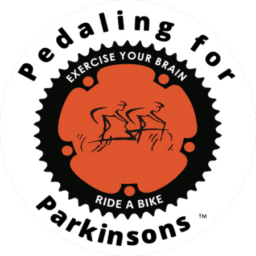

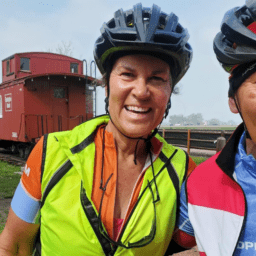

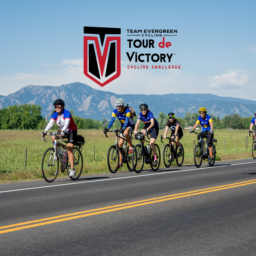

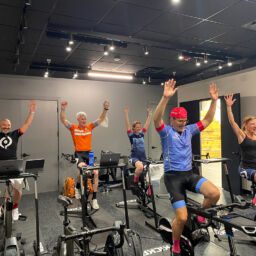
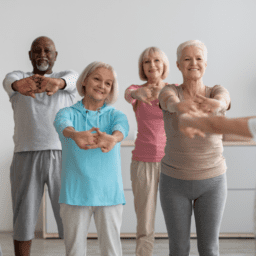
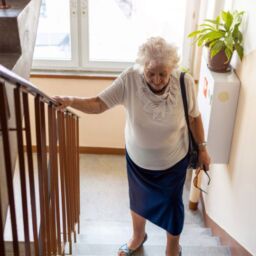




Regarding research funding. There needs to be more research regarding the use of medical marijuana to relieve PD symptoms.
Thank you for your comment Mary Ann, and we’ll definitely be keeping an eye on marijuana for Parkinson’s. Stay tuned to our upcoming blog posts, we have a three part series on marijuana for Parkinson’s that we will be releasing soon!
For years I have heard about the brain gut connection. I have had celiac disease for many years prior to my diagnosis. with pd. I am not aware of any studies being conducted, how come?
Hi Gary, thank you for your question! The Michael J Fox Foundation has a collection of articles about recent research and connections between Parkinson’s and the gut, which can be found here. As a Foundation, our research focuses on improving quality of life for people with Parkinson’s, so more specifically on topics like exercise. You can find a full list of our past and currently funded research here.
Studies re cycling sound really good. I am also interested in research re breathing problems ie SOB in Parkinson’s. Mine were and are early presenting problems, not the result of wearing-off of carbidopa. Thanks. Marina
Marina – thank you for sharing research you are interested in seeing. And in the meantime, we highly recommend discussing this symptom with your doctor or movement disorder specialist to see if they have any suggestions to alleviate shortness of breath.
I’d like more research on causes of and prevention for off periods.
I am interested in discussing the phenomenon of myoclonus in PD. What is the difference between myoclonus and diskinesa? I have been experiencing involuntary movements , jerky in nature,happen only at night while trying to fall asleep and upon awakening.how is myoclonus treated and how to tell them apart?(I mean, diskinesa and myoclonus).
The research study described in this article is taking place at three locations in Colorado. If you’d like to join the study, visit http://www.pedalingforparkinsonscolorado.org
Thanks for sharing this link, Tom.
Note: The link has changed to https://www.pedalingforparkinsons.org
why isn’t there any research studies out here like the pedalingforparkingsons one, in New Mexico, Albuquerque. I can’t travel.
Thank you for your comment, Jackie. Often studies are influenced by where the researcher is able to conduct the study – usually at their research institution. In the case of the Pedaling for Parkinson’s study with Drs. Rosenfledt and Alberts, the researchers are located at the Cleveland Clinic. However, once this research is complete it has the potential to benefit us all regardless of location!
If you are looking for exercise and wellness resources in the Albuquerque area, take a look at this list we compiled for our event in Albuquerque last October: https://www.davisphinneyfoundation.org/download/1046935/. Please don’t hesitate to reach out to use with any questions: 303.733.3340